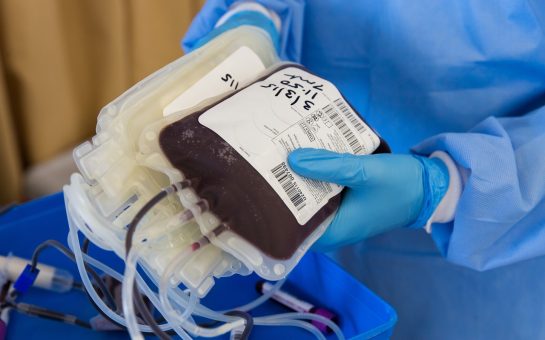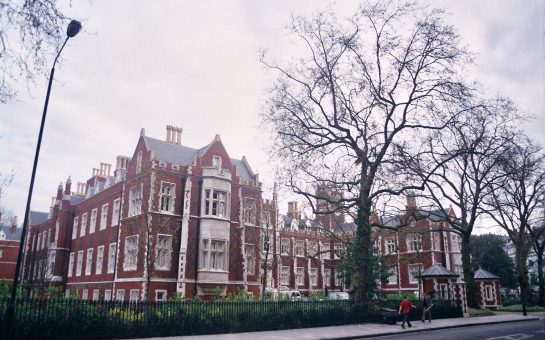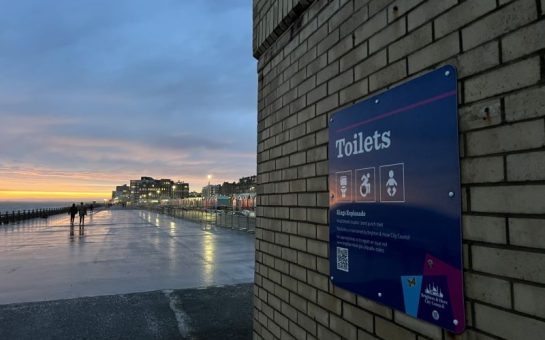By Mary Nagle
May 20 2020, 12.25
Follow @SW_Londoner
When 30-year-old Zimbabwean broadcaster Zororo Makamba presented with flu-like symptoms after a trip to New York, his GP put it down to the change in temperature.
A few days later, he had a fever. His immunity hadn’t entirely recovered from an operation, six months before so he was hospitalised and a COVID-19 test was ordered.
By the time the results confirmed that he had the virus he needed oxygen.
The hospital, Zimbabwe’s largest referral centre for COVID-19 cases, didn’t have a ventilator.
His brother eventually found a friend who’s relative had used one before he died.
The ventilator was driven to the hospital but they didn’t have an adaptor for its American plug.
Zororo’s brother rushed to buy one but was told that the room didn’t have sockets. Hospital staff forbid the use of an extension cable.
Makamba tried to have his brother moved to the clinic where he had been operated on months before. The health minister told him not to move and said that equipment would soon arrive.
It didn’t.
With his brother’s condition steadily worsening, he asked if he could get equipment on loan from a trauma centre. They called him back to say he could have it for US$120,000.
His brother said in a statement: “We don’t have US$120, 000 and it is not our responsibility to buy equipment for the government.”
Zororo Makamba died soon after, becoming Zimbabwe’s first recorded coronavirus death.
‘Equity in Healthcare’ was a primary aim when Zimbabwe became independent from the UK 40 years ago with Robert Mugabe as prime minister.
In the 1980’s Zimbabwe’s health system was one of the finest in Africa with free healthcare for the least well off, a thriving teaching hospital network, and new hospitals.
But now, after spates of strikes many Zimbabwean doctors have left the country.
The 2019 strike, which lasted over four months, called for basic medical supplies like painkillers and bandages.
Some doctors were forced to turn away cancer patients after diagnosis because they didn’t have the drugs to treat them.
In the onset of this crisis, nurses and doctors didn’t have PPE. A high court ruling last month ordered the government to test health workers and provide necessary protection.
By April 13, Zimbabwe had carried out 604 coronavirus tests in total. Neighbouring South Africa has been carrying out 3-5,000 per day.
Some Zimbabweans were turned away from testing sites, being told that their symptoms weren’t severe enough.
A 79-year-old man living in a retirement village was tested for Malaria and diagnosed with bacterial infections before he was tested for COVID-19.
By the time he tested positive his kidneys had begun to fail. He died two days later.
Figures indicate that in Zimbabwe, a fever is still more likely to indicate malaria than COVID-19.
A recent malaria outbreak has claimed over 130 lives in the country where there have been just four recorded coronavirus deaths (21 April).
With so few people being tested, it is unlikely that the true figure is this low.
An injection of US$43,6 from the British Government, announced on 21 April, is the biggest single donation to Zimbabwe’s coronavirus effort.
The money will target infection prevention and control, child support, healthcare worker support and humanitarian aid.
The first instalment of the Zimbabwean’s government’s only relief effort thus far, in a country with almost no social security, is expected to give between 5 and 8 US dollars to less than 4% of the population.
With over 90% of the of the population depending on off-the-books work, Harare’s markets had to be reopened.
For some vendors it is a choice of whether to die from starvation or risk dying from the coronavirus.
The government also had to roll back on an attempt to close down money transfer agencies as many Zimbabweans are dependent on money wired from relatives abroad.
The president has threatened 20-year prison sentence for anyone who spreads ‘rumours’ about the virus and five reporters were temporarily arrested.
However the country’s Defence Minister Oppah Muchinguri-Kashiri said: “Coronavirus is the work of God punishing countries that imposed sanctions on us.”
Ministers from Zimbabwe and some other African nations commonly get healthcare abroad.
Vice-President Constantino Chiwenga travelled to China for treatment last month and now leads the country’s coronavirus task force.
Current global travel restrictions may mean that for the first time Zimbabwean leaders will be forced to experience the health system in which they have taken so little interest.




